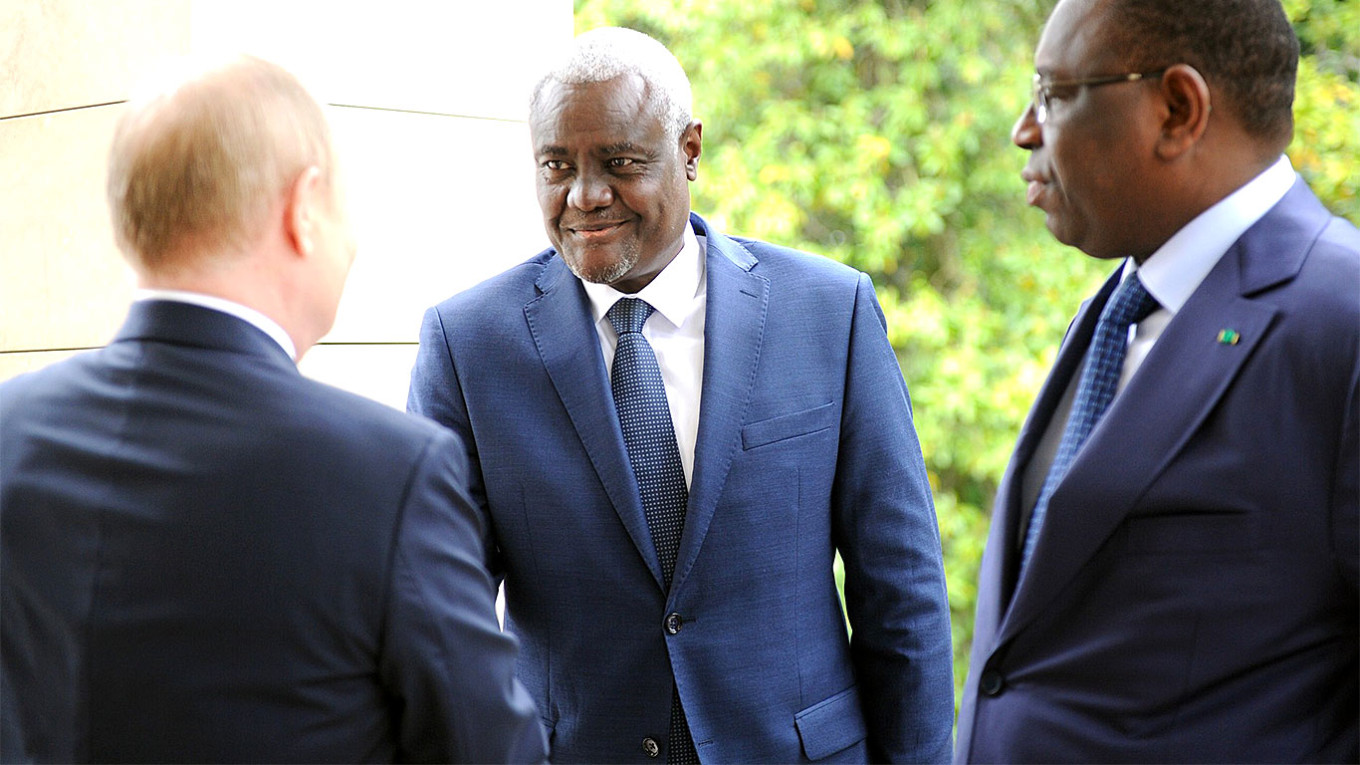While most members of the United Nations condemned Russia’s invasion of Ukraine, representatives of a number of developing and post-colonial states, half of them in Africa, failed to do so, either by opposing a March 2, 2022 UN resolution, abstaining, or not voting at all. In another vote on suspending Russia from the UN Human Rights Council, 82 states either opposed or abstained. These results reveal a failure on the part of states to empathize with the aspirations and sufferings of Ukrainians, despite the fact that Ukrainians are experiencing what many themselves have endured: a brutal, colonial assault aimed at denying their right to self-determination.
Russian influencers have retrieved tricks from the Soviet toolbox to manipulate African leaders: Soviet propagandists typically posed as anti-imperialists, playing on the grievous history of European colonial exploitation. They thus appealed to pan-Africanists and nationalists, despite the Soviet Union’s own post-war expansionism that left it in control of Central and Eastern European countries by installing puppet regimes, and violently putting down demands for more autonomy in Hungary and Czechoslovakia
In fact, Russia’s effort to conquer Ukraine is part of a centuries-long tradition of imperial subjugation of lands over which Russian rulers have claimed dominion. Beginning in the 16th century, after the fall of Constantinople to the Ottoman Turks in 1453, Russians claimed to be a messianic Third Rome, the Orthodox Christian Holy Rus. As the Ottoman Empire crumbled and receded, the Russian Empire expanded in some areas it had ruled. Russian armies also took over Siberia and parts of China. In the 19th Century, Russia conquered the territories of Central Asia and engaged in rivalry with the British Empire over Afghanistan and Iran known as the “Great Game.” Russia colonized parts of North America. Tsarist Russia ruled by autocratic Pan-Slavic absolutism, funded by the work of millions of serfs who labored as slaves owned by the state and nobility.
The Soviet Union, posing as a liberating, anti-imperial force, expanded the Russian Empire under a different label. Ukraine, parts of which had been ruled by Lithuania, Poland and Russia, and which had become an independent state after the October Revolution, was annexed in 1921.
Today Russian foreign policy is driven by a Eurasianist ideology that seeks control of former Soviet republics which, in declaring their independence, contributed to the collapse of the Soviet Union. The goal is a Russian-dominated Eurasia, a civilizational region within which the borders of nation states, and indeed the very concepts of citizenship and sovereignty, are made irrelevant by the putative reality of a more powerful historical and cultural unity.
Russia says its invasion of Ukraine is not a violation of Article VII of the United Nations Charter, which outlaws aggression, claiming Ukraine is not, in fact, a sovereign state, and that the massive military assault is just an internal “police action.” Russian ruler Vladimir Putin clarified, just prior to the invasion, that in his view, Ukrainian sovereignty originated only when Lenin created the Ukrainian Soviet Socialist Republic as a distinct political entity within the U.S.S.R. Between 1932-1933, millions of Ukrainians starved to death as a result of Soviet dictator Joseph Stalin’s efforts to force Soviet ideology on the Ukrainian people.
Putin, with significant success, has played on lingering, post-colonial resentment against Western states in marshalling support for his war – a war in which the Russian army has murdered untold numbers of Ukrainian civilians while independent human rights monitors have documented other war crimes and crimes against humanity, including rape, torture, pillage and forced deportation. He has blamed the war on a false, concocted threat to Russia by NATO members, although a majority of Ukrainians want to join NATO for defensive purposes. Yet Putin has admitted that the real purpose of the war is to “return what is Russia’s.”
Despite this contradiction, Russian soft power has aroused the sympathies of many who have suffered colonial rule, and who seek freedom and self-determination from what they feel is the chokehold of Western bullying. For example, pan-Africanist Kemi Seba said Putin “doesn’t have the blood of slavery and colonization on his hands.” Ugandan Lieutenant-General Muhoozi Kainerugaba claimed that the majority of the world’s non-white people correctly support Putin.
Others from developing countries are simply indifferent to the war, believing it a proxy battle between rival superpowers equally injurious to their rights and well-being. In the autocratic, expansionist Russian state of today, dissent has been criminalized and thousands of citizens have been forced into exile for their principled opposition to the war. If Russia is allowed to have its way with the independence-loving people of Ukraine and international borders fall with no consequences, we will be ushering in a new age of imperial and colonial conquest that will threaten others whose freedom and sovereignty are fragile.
In their resistance to Russian aggression, Ukrainians deserve solidarity and support from all who have known the humiliation and oppression of colonial rule. Citizens of post-colonial lands, more than any others, should understand their right to define their own future.
A Message from The Moscow Times:
Dear readers,
We are facing unprecedented challenges. Russia's Prosecutor General's Office has designated The Moscow Times as an "undesirable" organization, criminalizing our work and putting our staff at risk of prosecution. This follows our earlier unjust labeling as a "foreign agent."
These actions are direct attempts to silence independent journalism in Russia. The authorities claim our work "discredits the decisions of the Russian leadership." We see things differently: we strive to provide accurate, unbiased reporting on Russia.
We, the journalists of The Moscow Times, refuse to be silenced. But to continue our work, we need your help.
Your support, no matter how small, makes a world of difference. If you can, please support us monthly starting from just $2. It's quick to set up, and every contribution makes a significant impact.
By supporting The Moscow Times, you're defending open, independent journalism in the face of repression. Thank you for standing with us.
Remind me later.






